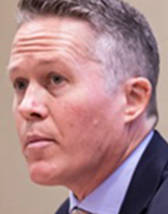Japan as the Global South’s Advocate: Why the ‘Rule of Law’ Benefits All
As the host of this year’s G7 Summit, Japan has reached out to states across the Global South in an effort to safeguard a peaceful international order from aggressor states.
The G7 Summit meeting in Hiroshima held a special meaning, as it served as a platform for Japan to link the event with its call for support for ‘basic principles’ from the so-called Global South. As the world remains polarised after the Russian invasion of Ukraine, the G7 has become one of the few forums where ‘the West’ can collectively affirm its unified position and project its message globally.
This year’s agenda, reflecting Japan’s normative and inclusive approach, appropriately focused on the rule of law and the Global South as ‘two perspectives’. To cast a wider net, Japan thoughtfully invited leaders from eight ‘outreach countries’: Australia, Brazil, Comoros (which currently chairs the African Union), the Cook Islands (chair of the Pacific Islands Forum), India, Indonesia (chair of ASEAN), South Korea and Vietnam. The meaning of Hiroshima was highlighted by the presence of Ukrainian President Volodymyr Zelensky and meetings with world leaders – including with India’s Prime Minister Narendra Modi.
The final communiqué reaffirms the G7’s will to ‘champion international principles and shared values’ by ‘upholding and reinforcing the free and open international order based on the rule of law, respecting the UN Charter to the benefit of countries, large and small’ (emphasis added). It also does so by ‘strongly opposing any unilateral attempts to change the peacefully established status of territories by force or coercion anywhere in the world and reaffirming that the acquisition of territory by force is prohibited’.
‘Partners’ was selected instead of the term ‘Global South’ in the G7 discourse: use of the latter would have reified imagined blocs and further polarised the large community of states. Nevertheless, as the Japanese government had envisaged, the G7 plenary and various sessions were directly addressed to a wide range of developing and emerging countries, given their determining role in the sustainability of the rules-based international order.
In preparing for the Summit, Japanese Prime Minister Fumio Kishida visited the US and other G7 countries earlier this year. Canvassing Africa for support, he called on four key countries – Egypt, Ghana, Kenya and Mozambique – in late April and early May. He did so after having unveiled version 2.0 of Japan’s ‘free and open Indo-Pacific’ as its guiding foreign policy in New Delhi in March. For his part, Foreign Minister Yoshimasa Hayashi toured Latin America and the Caribbean, vocally pushing Japan’s diplomatic tenets.
Reflecting eight decades of responsible statecraft, Japan is attempting to live up to expectations by threading the needle of shared interests and basic principles
Japan sees the political South as a critical battleground in the unfolding competition between China and the US. That Japan recognises the importance of developing and emerging states is a testament to the collective weight they now command. Accordingly, Japan has carefully featured the fundamental norms of international law as public goods that are acceptable, enforceable collectively and beneficial to all states, large and small, regardless of whether they support the US or China. Japan believes that only by gaining broad support can a peaceful order be safeguarded from predation and coercion by aggressors.
Given the international system, predation by the strong is not uncommon. Yet Japan is firmly and politely pushing back via engaging narratives, as it did in New Delhi in March, and now in Hiroshima. Indeed, despite recent boosts to its defence budget, Japan’s strength does not lie in military means. Rather, Japan uses its soft power yielded from development aid, networking and narrative-making. Herein lies Tokyo’s unsullied international reputation, and thus its ability to sound the trumpet against coercion.
The ‘international order based on the rule of law’ that Tokyo consistently pushes may be backed by US power, but by definition it is not the US-led order, let alone a China-led one. Such an order is essentially normative and would condemn the illegitimate use of force by any state. In so doing, Japan is fighting a rearguard action against authoritarian Eurasian states presently seeking to do so.
The stark reality is that Japan is surrounded by nuclear-armed China, Russia and North Korea. Japan’s security, like so many others, depends on the US’s extended deterrence. Without engaging a domestic debate on nuclear deterrence, Prime Minister Kishida may have been utopian in exploring nuclear disarmament at the G7. Nonetheless, he addressed something more concrete and urgent.
As Kishida declared, Hiroshima was ‘a unique opportunity to express our determination to reinforce a free and open international order while proactively addressing the needs of people across the globe, including those in the global South’. Reflecting eight decades of responsible statecraft, Japan is attempting to live up to expectations by threading the needle of shared interests and basic principles. It remains to be seen who will buy into Japan’s vision, but Tokyo is surely pushing the gospel needed for a turbulent world.
The views expressed in this Commentary are the authors’, and do not represent those of RUSI or any other institution.
Have an idea for a Commentary you’d like to write for us? Send a short pitch to commentaries@rusi.org and we’ll get back to you if it fits into our research interests. Full guidelines for contributors can be found here.
WRITTEN BY
Brendon J Cannon
Kei Hakata
- Jim McLeanMedia Relations Manager+44 (0)7917 373 069JimMc@rusi.org



